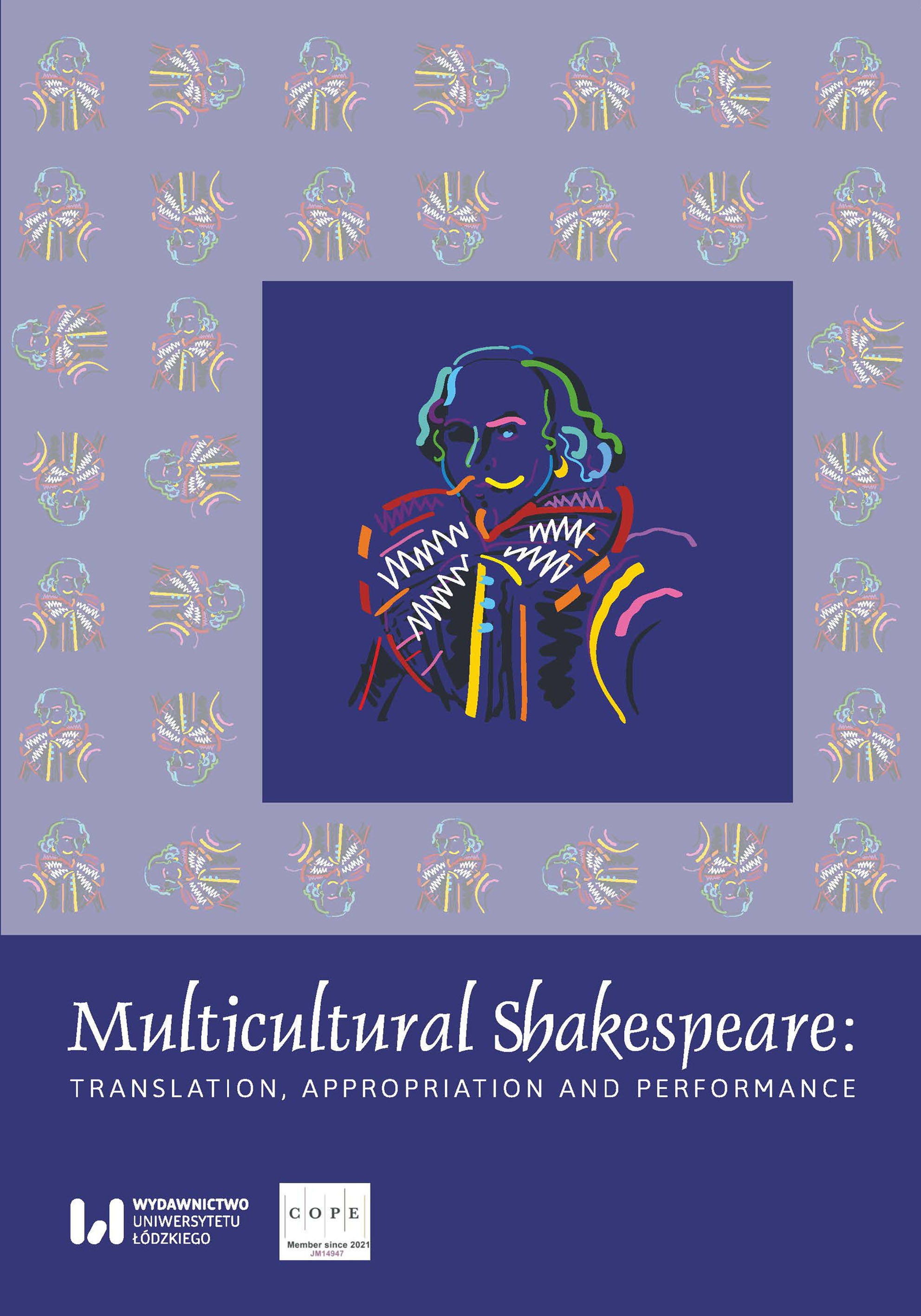Indian Supplements to Shakespeare: The Hungry and We That Are Young
DOI:
https://doi.org/10.18778/2083-8530.30.07Keywords:
global, local, versioning, supplement, substitute, surplusAbstract
While there is no longer any debate about Shakespeare’s position as a global author, the rapidly expanding worldwide archive of the versioning of his works continues to pose a critical challenge. Questions like how far and to what extent can this be seen as Shakespeare or not Shakespeare are raised. Estimation of value is vexed, too: does it reside mainly in the local, or can it also extrapolate meaning globally? Methodologies, too, are debated: is archiving the starting or the endpoint of reception? Or is the construction of networks of analyses around and between them the mode towards negotiating appreciation?
Taking a leaf out of Derrida’s “That Dangerous Supplement,” this paper will propose a critical perspective of supplementarity as an intervention in the debate on the proliferating versioning of Shakespeare. This sees the traffic in Shakespeare as both a surplus, a plenitude enriching another plenitude and also a substitute filling a void. It considers translation, adaptation, appropriation, and even performance of Shakespeare as additions which enhance and complete making good an insufficiency. It will locate this discussion on two much-acclaimed adaptations to emerge out of India: the film The Hungry (2017), directed by Bornila Chatterjee, of Titus Andronicus, and the novel We That Are Young (2017) by Preti Taneja, based on King Lear.
Downloads
References
Attridge, Derek, ed. Jaques Derrida, Acts of Literature. New York: Routledge, 1992.
Google Scholar
Bhandari, Arpita. “Indian Film based on Titus Andronicus is ‘Monsoon Wedding’ gone horribly wrong.” 24 September 2017. https://scroll.in/reel/851696/indian-filmbased-on-titus-andronicus-is-monsoon-wedding-gone-horribly-wrong Accessed 10 December 2023.
Google Scholar
Chatterjee, Bornila. “Adapting Shakespeare: Directors and Practitioners in Conversation.” Women and Indian Shakespeares. Eds. Thea Buckley, Mark Thornton Burnett, Sangeeta Datta and Rosa Garcia-Periago. London: The Arden Shakespeare, Bloomsbury, 2022. 243-261.
Google Scholar
Chatterjee, Bornila, dir. The Hungry. BFI. 2017.
Google Scholar
Lei, Bi qi Beatrice. “The Fatal Attraction of Empress Americana: Titus Andronicus as Japan’s Post-colonial Allegory.” Forthcoming in Shakespeare in the ‘Post’ Colonies.
Google Scholar
Maus, Katharine Eisaman, ed. “Introduction.” Titus Andronicus. The Norton Shakespeare. Eds. Stephen Greenblatt, Walter Cohen, Jean E. Howard and Katherine Eisaman Maus. New York: W.W. Norton and Co. 1977.
Google Scholar
Maxwell, J. C., ed. “Introduction.” Titus Andronicus. The Arden Shakespeare, London: Methuen, 1968.
Google Scholar
Taneja, Preti. “Adapting Shakespeare: Directors and Practitioners in Conversation.” Women and Indian Shakespeares. Eds. Thea Buckley, Mark Thornton Burnett, Sangeeta Datta and Rosa Garcia-Periago. London: The Arden Shakespeare, Bloomsbury, 2022. 243-261.
Google Scholar
DOI: https://doi.org/10.5040/9781350234352.ch-012
Taneja, Preti. “Lear’s Indian Daughters.” 28 March 2013, Blogging Shakespeare, Shakespeare Birthplace Trust.
Google Scholar
Taneja, Preti. We That Are Young. Norwich: Galley Beggar Press, 2017.
Google Scholar
Downloads
Published
How to Cite
Issue
Section
License

This work is licensed under a Creative Commons Attribution-NonCommercial-NoDerivatives 4.0 International License.












